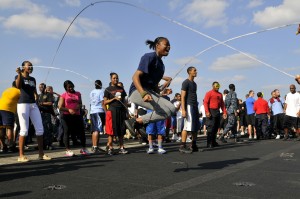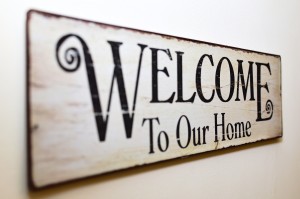I received an email from an orthopedic colleague who I have never personally met. We are both part of an Internet discussion group about chronic pain and disability. His observations were very succinct and I think summarizes the problem of physicians not being adequately trained in chronic pain. Here is his note.
A surgeon’s perspective
David, Your early experience in training really struck home, as I heard this old classic song on the radio about the same day as I received your email.
Skip a Rope, the time and location; 1968, around time of MLK’s death, Nashville TN, 1st year Vanderbilt med school; this song was released years before its time. Psych courses meant little to me at the time as a budding surgeon who considered orthopedics to be simply mechanics ….fix what’s physically wrong and all will be OK. Move on to next broken bone.

Now, almost 50 years later, retired as an orthopedist, currently practicing addiction medicine, the impact of that song is more profound to me than the first year psych courses presented to a misdirected med student.
Most of my female (and a lot of males) addiction patients are also chronic pain patients. A review of the pain diagram and word descriptors frequently reveals vague, somewhat neuropathic, generalized pain. Often without any preceding injury or solid medical explanation. Next question is “do you have nightmares?” Response is typically a puzzled “yes”, as that is usually the only time any physician has ever asked that in connection with the pain. This then leads to the ACE questionnaire and the connection then is usually obvious. Frequently, they can be considered a chronic form of PTSD, which has led, at least in part, to inappropriate self-medication. As with the VA-recognized concept of PTSD treatment, sleep is the first consideration. and the use of specific medications usually improves or eliminates nightmares. This is how the healing process often now proceeds in my practice as a physician whose medical training focused on curing the physical ailment without sufficient understanding of mind body healing process.
Should have paid attention to the lyrics of Skip a Rope 50 years ago, but what do young medical students know anyway?
Best regards, Gene Saiter
ACE
ACE stands for “Adverse Childhood Experiences”. Drs. Andra, Felliti and others published a landmark study in 1998 (1) looking at the long-term effect of these experiences in over 17,000 people. There were 10 ACE’s defined in three categories.
Household Dysfunction
- Substance abuse
- Parental separation/ divorce
- Mental illness
- Battered mother
- Criminal behavior
Abuse
- Psychological
- Physical
- Sexual
Neglect
- Emotional
- Physical
They clearly demonstrated a link between the ACE score and difficulties functioning later in life – the higher the score, the worse the adult problems. There is an endless amount of data that can be discussed but the most disturbing aspect of the study for me was that only about a third of people have an ACE score of zero. 26% had three or more. Our country overall isn’t doing a competent job of parenting and all of us are paying the price.
What is your children’s ACE score?
I would also dare say that the incidence of ACE events is higher in a family where at least one of the members is suffering from chronic pain. If you have to ask why I would think that, then please read or re-read my book. Being trapped by pain is frustrating and often results in what Dr. Sarno called “rage”. It is completely understandable, but your family doesn’t deserve to be the target. Healing begins at home

You also have a legitimate gripe in that the medical profession isn’t meeting your need to become free of pain. We have no comprehensive training addressing it. We’re focused on “disease” and methods to “fix” you. We aren’t taught the concept that the mind and body are simply a unit. There is no separation. I asked Dr. Saiter if I could use his letter and here is his reply.
The knowledge gap
Thank you, David for your kind thoughts. I am more than willing to share my name and these treatment experiences, as it took me many years to discover the techniques I now employ with addiction and pain. I owe much of this to Jennifer who directed me to Vincent Felitti’s articles pertaining to long-term effects of ACE scores. Unfortunately, this medical knowledge is not taught in usual medical curriculum, nor is proper use of opioids for that matter, but it should be. Gene
Dr. Luskin’s perspective
I am not writing this post to let you off of the hook. The past is done and there is nothing you can do about it. Dr. Luskin, a friend of mine and author of Forgive for Good summed it up nicely at one of the workshops my wife and I put on with him at the Omega Institute. Here is a rough version of his thoughts.
“It is a tragedy to have your life ruined by your parents. However, to hold on to it 50 years later does not make any sense. It is fine to be upset that they harmed you until you were 18 years old. Then you must acknowledge that you took over and continued to ruin your own life.”
The bigger tragedy
Take responsibility for every aspect of your own life. Write down a list of everyone and everything you can blame for screwing up your life. It will become ridiculous quickly. What is a bigger tragedy is that you are continuing to blame the past and now adding to the world’s misery instead of being a source of joy.
I am not saying that this is an easy task and it does take specific tools, which are different for everyone. My ACE score was greater than 4. I first had no awareness, as I thought that this was the way everyone was raised. I did spend my life blaming the world for my unhappiness. I also thought that this was reasonable. My familial programming runs deep and I still find an endless number of ways to remain in a victim role. I was fortunate to have discovered methods to let me out of my mental trap. But I’m also aware and I have lost any of my excuses. So have you. Choose to not be a victim
There are numerous solutions proposed to solve this problem of poor parenting. I have heard variations of these thoughts for over 40 years. They generally are focused on somehow improving parenting in the home. It is not possible to get into enough families’ lives to make a major societal impact. However you can make a make a difference by taking full responsibility for your own life and break up the cycle of abuse within your own family. If you are in pain, frustrated, and do not think you are abusive, think again. Anger is self-centered, destroys awareness and is abusive. The first step is to become aware of the effect of pain and anger on your family and your life. Pain = Anger = Abuse
An excellent resource on awareness is Anthony Demello’s book, The Way to Love.
Maybe you were ACE’d out but don’t ACE out your family.
- Felitti VJ, Anda Rf, Nordenberg D, et al. The relationship of adult health status to childhood abuse and household dysfunction. American Journal of Preventive Medicine (1998); 14:245-258.
